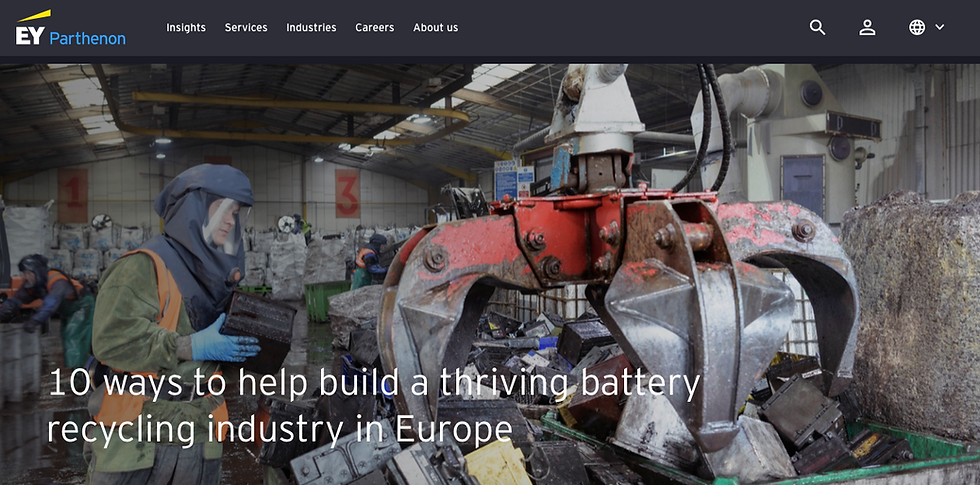About the battery recycling industry: cases of Europe and Brazil
- Art Dam
- Jan 9, 2023
- 2 min read
Currently, the battery recycling sector’s infrastructure is primarily designed to handle cobalt. But as technologies shift towards new materials - and lower cobalt content - changes are expected. The amounts of metals needed for a single EV lithium-ion battery are currently around 8 kg of lithium, 35 kg of nickel, 20 kg of manganese and 14 kg of cobalt (*).
Let's go over the recycling of lithium-ion batteries. From one perspective, a region were electric vechicles (EV) are already part of the daily routine, Europe. From another, Brazil, were lithium-ion batteries currently appeal more to mobile phones (most of the Brazilian car fleet runs "flex" on ethanol).
According to EY, by 2025 volumes of spent batteries are anticipated to grow to 0.2 million tonnes per annum (mtpa) then increasing to 1.4 mtpa by 2035. This trend as batteries start to reach the end of their working lives. Currently, Europe’s recycling capacity is less than 0.04 mtpa (with limited recoverability to a few materials) – that’s 5x less capacity than what is needed even by 2025.
Click at the image below for an article by EY titled "10 ways to help build a thriving battery recycling industry in Europe".
About Brazil, we refer to the company Energy Source, that so far recycled around 500 tons of batteries using local technology, incorporating materials back into the production cycle, and contributing to the electrification process in the country. Their solutions currently relate to second-life, energy solutions, batteries repair and recycling itself (with 85% efficiency). The company has also a QRCode-based disposing process to monetize every kilogram of lithium discarded with them. Click here to know more.
As indicated by Nature (*) the story of the old lead-acid (toxic) batteries — the ones that start "traditional" cars — gives reason for optimism. Over decades an efficient industry has developed to have lead-acid batteries recovered and recycled at a 98% level. Given modern technology, this should be a great short-term recycling level target also for lithium-ion batteries.
* Refs. our September 2021 article "Electric cars need green batteries"




